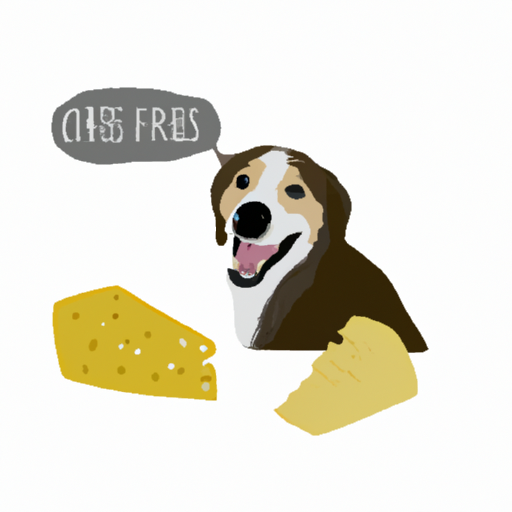Introduction
You love cheese and so does your furry friend. But often, as a caregiver, you find yourself asking: “What kind of cheese can dogs eat?” It’s not an easy question to answer, as every type of cheese has different ingredients and nutritional content. That’s why we’ve compiled this comprehensive guide to help you figure out what cheeses are safe, which ones should be avoided, and how much is too much.
How Digestible is Cheese for Dogs?
When it comes to feeding your pet cheese, digestibility is a key factor to consider.
-
Hard cheese: Hard cheeses like Cheddar, Swiss, and Parmesan are usually easier for dogs to digest because they have lower lactose levels.
-
Soft cheese: On the other hand, softer cheeses like Brie or Blue cheese can be harder for dogs to digest and may cause stomach upset.
| Cheese Type | Digestibility |
|---|---|
| Hard Cheese | High |
| Soft Cheese | Low |
Health Considerations When Feeding Cheese to Dogs
Cheese can be a great source of protein and calcium for your dog, but it’s not without its drawbacks.
- Calories: Cheese is high in calories and can contribute to weight gain if given in large amounts.
- Salt: Many cheeses are high in sodium, which can be harmful to dogs in large amounts.
- Lactose: Some dogs are lactose intolerant and can’t digest dairy products well, leading to gastrointestinal upset.
The Right Amount of Cheese for Dogs
Just like with any treat, moderation is key.
- For small dogs, a few small pieces of cheese a week should be enough.
- Larger dogs can handle a bit more, but you should still limit cheese to no more than 10% of their daily caloric intake.
Cheeses to Avoid
While most cheeses are safe in moderation, there are a few you should avoid altogether:
- High-fat cheeses: These can lead to pancreatitis in dogs.
- Blue cheese: Some types of blue cheese contain a substance that can be toxic to dogs.
- Cheeses with added ingredients: Avoid any cheese with added garlic or onions, as these can be toxic to dogs.
FAQs
1. Can I feed my dog cheese every day?
Feeding cheese every day is not recommended due to its high calorie and fat content.
2. What should I do if my dog ate a large amount of cheese?
If your dog consumes a large amount of cheese, monitor them closely for any signs of stomach upset or discomfort. If symptoms persist, contact your vet immediately.
3. Can puppies eat cheese?
Puppies can eat cheese in moderation, but it is essential to introduce it slowly and watch for any signs of lactose intolerance or allergic reactions.
In conclusion, while cheese can be a tasty treat for your pup, it’s important to ensure it’s the right kind of cheese and given in moderation. As always, when introducing a new food to your dog’s diet, it’s recommended to do so slowly and monitor for any adverse reactions.



